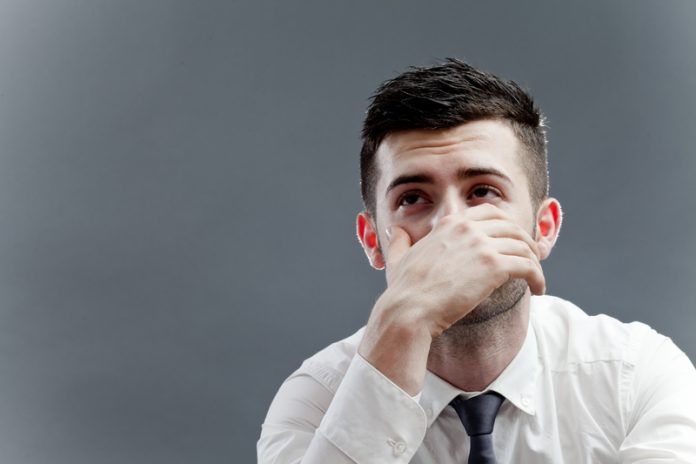Chief Executive of Anxiety UK, Nicky Lidbetter lifts the lid on the relief and rehabilitation of persons affected by agoraphobia and associated anxiety disorders, phobias and conditions and the extent to which these are treatable and manageable
Anxiety UK (AUK) was founded in 1970 by a gentleman called Harold Fisher. Harold was, at that time, supporting his wife Katharine who was living with agoraphobia and wanted to find ways to support others experiencing agoraphobia and phobic anxiety. In the 1970s and indeed for many years after, approaches to dealing with anxiety disorders were overly medicalised, with the standard treatment typically comprising a prescription for a benzodiazepine. Harold was an early pioneer in ensuring that anxiety was seen as just as significant a feature in mental healthcare as depression and indeed, serious mental health disorders such as psychosis.
Today, almost 50 years later, AUK is still a user-led organisation, run by people living with anxiety, stress, or anxiety-based depression. The charity works to relieve and support people with anxiety (and their carers) by providing information, help and understanding via a number of services, including 1:1 therapy. We have a high-profile medical advisory panel and work regularly with external agencies and healthcare professionals, as well as undertaking regular campaigning to raise awareness of the conditions associated with anxiety.
At the moment, it is estimated that 40% of disability worldwide is due to anxiety and depression and in the UK, there are between eight and ten million people seeking support with anxiety-related conditions at any one time and women are almost twice as likely to be diagnosed as men. Anxiety-related disorders have never had such a high profile as they do now; this change, however, has only occurred, materially, within the last five years.
Approximately 12 years ago, in 2006, AUK was lobbying the Department of Health to ensure that anxiety disorders were included in the main description as to who the national IAPT (improving access to psychological therapies programme scheme) was developed to support as the intention was to badge the scheme as being for those with depression and ‘associated disorders’. Importantly, anxiety now has parity of esteem with depression and in-turn mental health disorders are increasing parity with physical health conditions.
AUK has always worked on the basis of early intervention and access to support where anxiety disorders are concerned. And we see that tackling challenges early often leads to enhanced treatment response and a greater chance of clients returning to their pre-anxiety state. Some forms of anxiety, however, are complex and require sustained interventions to alleviate symptoms. Agoraphobia for one, is one of the most challenging forms of anxiety to treat and it often occurs as the result of the lack of early intervention with panic disorder.
There is much misinformation about what agoraphobia actually is; “fear of open spaces” is an often-used expression, however, agoraphobia is often a complex collection of multiple phobias and anxiety disorders that have culminated to give the sufferer a sense of consuming fear about ‘the outside world’. Fundamentally, agoraphobes can feel unsafe in situations that they cannot control, or cannot exit from easily, whether this be public transport, a movie theatre, shopping mall; fears are often both externally focussed (fear of others and situations) and internally focussed (fear of self/ internal symptoms such as vomiting, defecating etc).
Other similarly systemic forms of anxiety include GAD (generalised anxiety disorder), panic disorder and PTSD (post-traumatic stress-disorder). Having anxiety also vastly increases the likelihood of developing depression specifically related to having anxiety; in fact, mixed anxiety depressive disorder is one of the fastest growing primary care mental health difficulties.
As recognition of anxiety has progressed, so too has the availability and scope of treatment options. Previous tranquiliser-based medicines used in the 1970s and 80s, such as Valium, have given way to the use of SSRIs (selective serotonin reuptake inhibitors) as well as talking therapies, such as counselling and cognitive behavioural therapy (CBT). AUK has always been at the cutting edge of new treatments for anxiety, but we do recognise that therapies are not ‘one size fits all’ and that individualised approaches are key.
For many years, our charity has aimed to put those living with anxiety in touch with a therapist within two weeks of their first contact with us. We offer many different forms of therapy, for example, clinical hypnotherapy and acupuncture.
We also recognise that the way people want to access therapy has changed and offer access to digital platforms for therapy; this is most welcomed by some of our clients who are house-bound because of their condition. In the last five years, our website has become the main hub for the way people access our services, whereas this used to be our telephone helpline.
At AUK we recognise that formal guidance on the treatment of anxiety disorders has not moved on significantly from the NICE guidance introduced in 2007 – despite interim updates. Next year, however, new NICE guidelines will be introduced which we hope will expand the scope of reliable treatment options for anxiety.
We continue to invest in our own research (as funding for research into anxiety is virtually non-existent) and this has proved helpful in ensuring that our charity is continually able to best support the people who access our services because our research is so translational into direct support. In continuation of our spirit of innovative approaches to treatments we also continue to give a platform to treatment initiatives which don’t have a large profile. The ‘Head-Space’ mindfulness App is one such success story which we helped to gain real traction in the self-accessed therapies market.
The answer to treating anxiety does not lie in one single approach and AUK have always championed the use of multiple, holistic interventions such as; improved diets, more exercise, talking therapies, medical therapies. We have a significant interest in ‘nutritional psychiatry’ and the links between eating certain types of foods and the effects upon mental health.
It is absolutely our mission to make sure that people who experience anxiety are given all of the information they need to improve their condition. We also recognise, perhaps most importantly, that trying to support children and young people who have anxiety, or who are at risk of developing anxiety is absolutely crucial to ensuring reduced rates of disorder occurrence, thereby lessening the potential life-long impact of the condition.
Nicky Lidbetter
Chief Executive
Anxiety UK
Tel: +44 (0)161 226 7727
Editor's Recommended Articles
-
Must Read >> Brits more scared of flying than ever before















